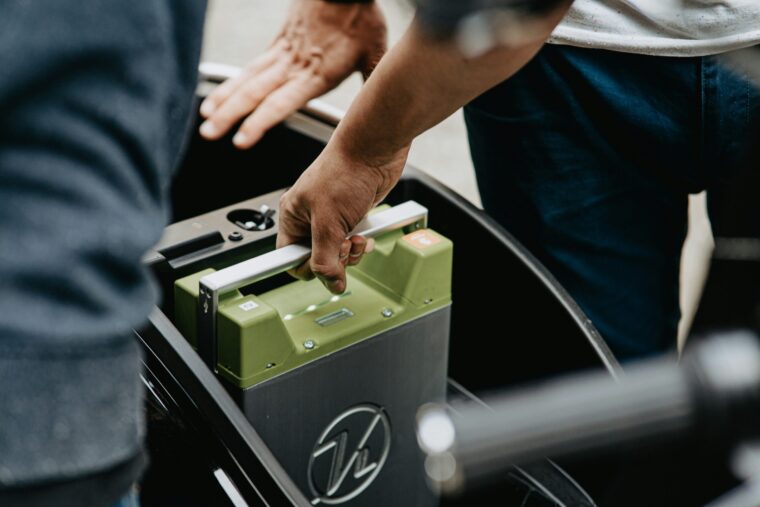
The U.S. Department of Energy (DOE) is unveiling billions in funding for projects boosting domestic advanced battery manufacturing and battery materials production nationwide. With projects spanning 14 states, the DOE will build upon previous investments bolstering the U.S. battery supply chain while creating jobs and boosting economic competitiveness.
Administered by the DOE’s Office of Manufacturing and Energy Supply Chains, the over $3 billion investment marks the second round of funding from the Battery Materials Processing and Battery Manufacturing and Recycling Program. The program, made possible by the Bipartisan Infrastructure Bill, enables the DOE to invest $16 billion in grants and funding opportunities for battery manufacturing, processing and recycling.
This funding will retrofit, expand and establish new facilities for battery-grade processed critical minerals and components, battery manufacturing and recycling. Additionally, the selected projects are projected to create more than 8,000 construction jobs and over 4,000 operator jobs, emphasizing the DOE’s commitment to revitalizing local economies.
RELATED: DOE funding opportunity to advance vehicle battery technologies
Projects awarded in this second round of funding will play a vital role in addressing supply chain challenges for critical minerals like lithium, graphite and manganese, which are essential for the production of batteries. Categorized by respective initiative, awarded applicants will embark on projects that further different segments of the supply chain, including recycling, component manufacturing, separation and processing, battery manufacturing and raw materials.
Six projects will further the recycling segment of the energy supply chain, totaling over $735 million in DOE funds.
Highlighting one of the largest recycling projects, American Battery Technology Company is set to receive $150 million to construct a facility in South Carolina capable of recycling 100,000 tonnes of lithium-ion battery materials annually. Partnering with stakeholders and local industry leaders, this initiative will also produce critical battery minerals, create a closed-loop supply chain, generate 1,500 jobs and establish community partnerships for workforce development.
Other recycling projects include initiatives that will build a first-of-its-kind recycled graphite production facility, construct electric vehicle (EV) battery recycling facilities, modernize current battery recycling infrastructure and develop technology to enable the direct recycling process.
For component manufacturing, the DOE is investing nearly $1.08 billion into eleven projects expanding domestic component manufacturing. Most of these projects will involve initiatives that retrofit, modernize or construct facilities that support the North American battery separator supply chain.
Two of these projects, led by Group14 Technologies, Inc and SKI US, Inc, will receive the two largest allocations of DOE funds, $200 million and $150 million, respectively.
Group14 Technologies’ project plans to build a silane manufacturing plant to support the production of its innovative silicon-based anode material, enhancing domestic battery supply chains and reducing reliance on foreign sources. The project anticipates the creation of over 300 construction jobs and 150 permanent positions while fostering community engagement through workforce development initiatives.
The component manufacturing project, led by SKI US, Inc, will strengthen the U.S. battery supply chain with a next generation synthetic graphite domestic continuous production facility to meet the battery demands of EVs and EV infrastructure. The facility would not use any feedstock from foreign entities of concern and would supply approximately 25,000 tonnes of synthetic graphite annually. Along with creating jobs, the project will also provide education and internship opportunities for South Carolina residents and neighboring communities.
The DOE will invest approximately $477 million into projects addressing the separation and processing segment of the energy supply chain. The three projects awarded funding under this segment will construct new refining facilities, strengthen the domestic nickel supply chain, mine for high purity manganese sulfate monohydrate and provide durable community benefits and jobs.
One proposal, the South32 Hermosa Project, will compete with foreign mining operations in China by developing the only domestically mined source of high purity manganese sulfate monohydrate, which is essential for EV battery chemistries. Through the development of processing facilities, the project aims to contribute to the rapidly developing EV battery supply chain and further economic development in Arizona’s historically underserved and disadvantaged communities.
Three battery manufacturing projects are set to receive nearly $450 million in this round of DOE funding.
Seeing $199 million from the DOE, EnerSys Advanced Systems’ battery manufacturing project, titled the EnerSys 5 Gigawatt-Hour Lithium-Ion Cell Production Facility, will construct a 500,000 square foot lithium-ion battery cell manufacturing facility in Piedmont, South Carolina. Along with an initial production capacity of five gigawatt-hours, the project will produce cost-competitive domestic cell capabilities for industrial and defense markets critical to U.S. economic and competitive growth.
The last supply chain segment projects were funded under is raw materials, receiving $450 million for two projects.
The two raw materials projects, led by SWA Lithium LLC and TerraVolta Resources, will construct two separate facilities in Arkansas and the Texarkana region utilizing Direct Lithium Extraction to produce battery-grade lithium carbonites. Combined, the two projects anticipate producing 70,000 tones of lithium carbonates or their equivalent, annually.
While the announcement marks a significant step forward for the Battery Materials Processing and Battery Manufacturing and Recycling Program, it is important to note that selection for award negotiations does not guarantee funding. The DOE will engage in further negotiations and environmental reviews before finalizing any awards that were announced.
The first round of funding from the program awarded 14 projects with $1.82 billion for domestic battery supply chain improvements. Round one awardees will undertake projects that construct and expand commercial-scale facilities to extract minerals essential for battery production. Many of the facilities are already under construction with one currently operational.
For a comprehensive list of rounds one and twos’ award recipients, see the DOE’s Battery Materials Processing and Battery Manufacturing Recycling Selections webpage.
Photo by Kumpan Electric on Unsplash
The post DOE announcing $3 billion in funding for domestic battery production and recycling appeared first on Government Market News.
